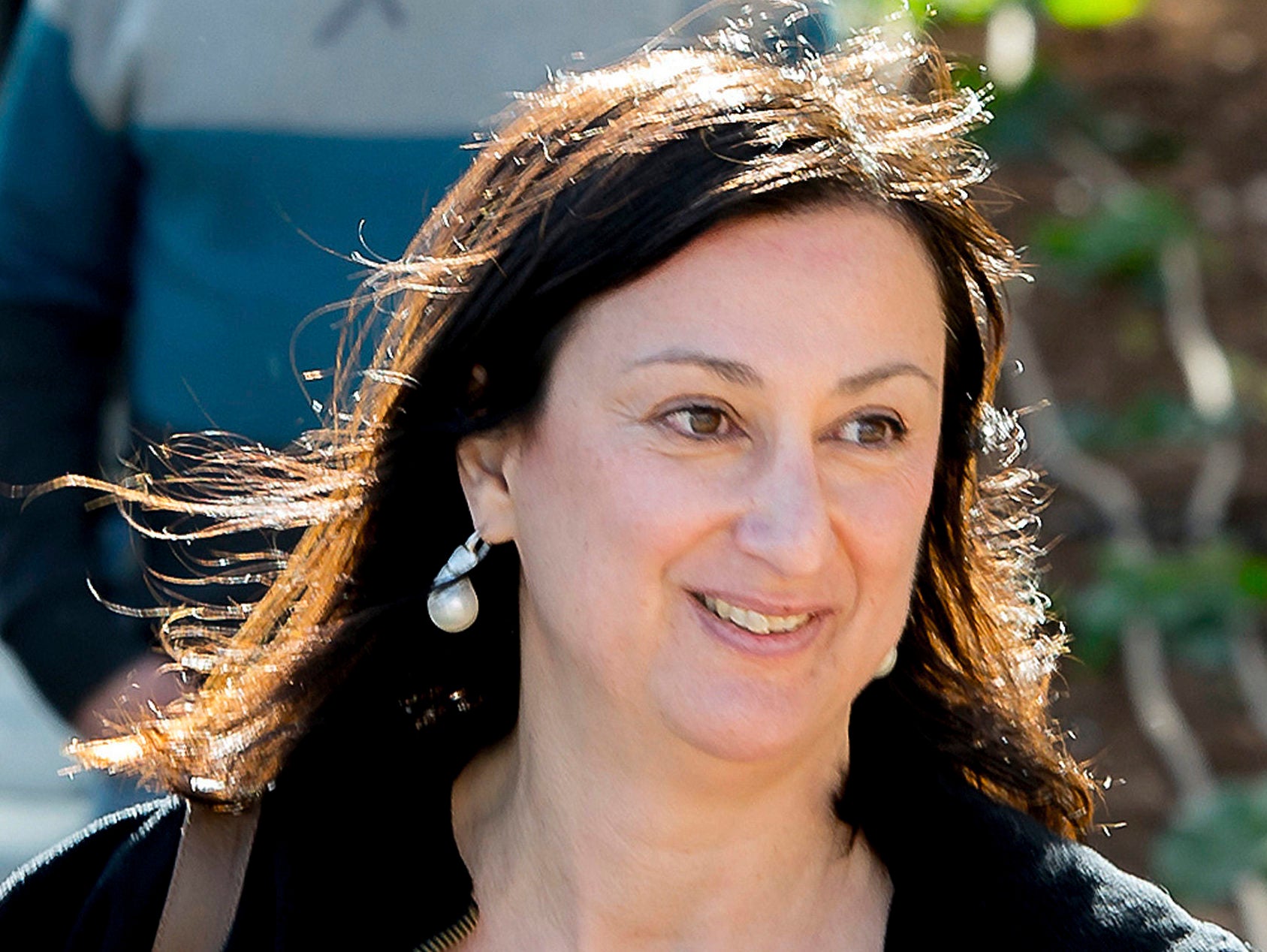
The president of the European Parliament has said the EU institution “must be the guardian of the values” of murdered Maltese journalist Daphne Caruana Galizia ahead of the second anniversary of her death tomorrow.
David Sassoli said it is “never acceptable to die because you are doing your job”, in paying respects to the investigative reporter killed by a car bomb, aged 53, as she drove near her home in Mosta in October 2017.
She had been investigating money laundering and corruption in the EU member state at the time and was facing more than 40 civil and criminal defamation suits against her reporting.
Despite her killing, approximately 30 civil cases, including one brought by Maltese Prime Minister Joseph Muscat, remain ongoing in the courts.
In a statement released to mark the second anniversary of Caruana Galizia’s “brutal” murder, Sassoli said the journalist would “still have had a brilliant career ahead of her” if she were alive today.
“Instead, we are here today to pay tribute to her because her commitment and dedication as a journalist meant she was taken away too soon,” he said.
Sassoli, who was elected to lead the European Parliament in July, said the anniversary meant it is “sad but necessary to remember the importance of freedom of expression and the press in democratic countries like ours.
“It is worrying to think that in the 21st century there is still a need for warnings to defend the rights and freedoms of citizens: these are the foundation of our European values and must be recognised and fought for on a daily basis,” he said.
Malta is ranked 77th out of 180 countries on the Press Freedom Index curated by Reporters Without Borders (Reporters Sans Frontieres) – a drop of 31 places in two years.
Europe – where journalists were killed in Slovakia and Bulgaria last year – is “no longer a sanctuary for journalists” as its investigative reporters are seeing the work “being obstructed more and more,” RSF has said.
Sassoli went on: “I want to express my personal support to all those courageous journalists, men and women who, like Daphne, are forced to sacrifice something in their lives, if not life itself, in search of the most precious possession in our democracies: the truth.
“The European Parliament must be the guardian of the values of Daphne Caruana Galizia.”
He also said the Parliament would “encourage and support” the judiciary and authorities in Malta in their work bringing those responsible to justice.
Malta launched an independent public inquiry into Caruana Galizia’s murder last month after pressure from her family and press freedom groups to find those responsible.
Three men charged with her murder are yet to be put on trial.
But the journalist’s family have raised concerns over members of the inquiry board’s proximity to government and previous investigations into her death.
RSF and Maltese news website The Shift have co-authored a report, published today under the title Justice delayed: The assassination of Daphne Caruana Galizia and Malta’s deteriorating press freedom climate, which sets out a series of recommendations to the Maltese authorities and the international community to ensure justice is done.
These include ensuring a “fair, public and timely” trial for the three murder suspects and a transparent criminal investigation that identifies the masterminds behind the attack, as well as establishing a separate inquiry to assess Malta’s media environment and journalist safety, and the withdrawal of all continuing defamation lawsuits against Caruana Galizia.
Muscat continues to refuse to drop his libel case against her unless her family publicly accept the findings of the Egrant inquiry that last year cleared him and his wife of a corruption scandal that was at the heart of Caruana Galizia’s claims.
Picture: AP Photo/Jon Borg/File
Email pged@pressgazette.co.uk to point out mistakes, provide story tips or send in a letter for publication on our "Letters Page" blog
